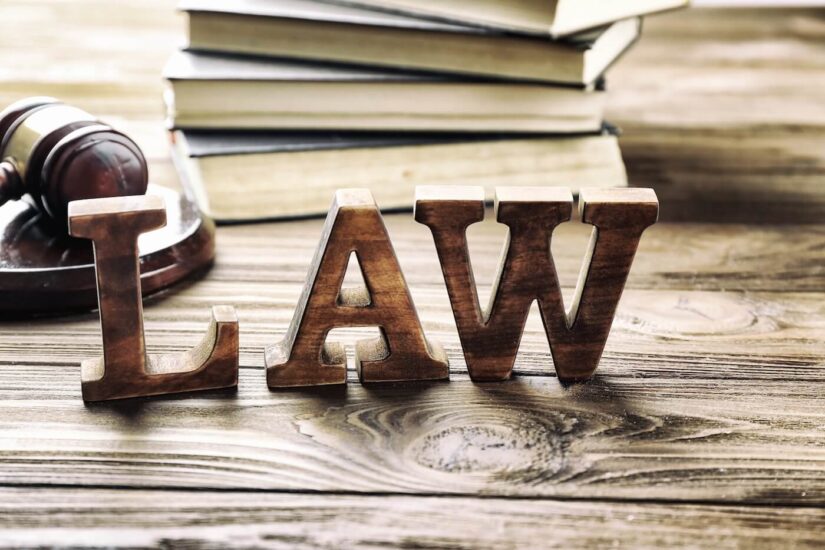
August 26, 2025
In Texas, a DWI becomes a felony under these conditions:
- Third or More DWI Offense: A third conviction is classified as a third-degree felony, with penalties including 2–10 years in prison and fines up to $10,000.
- DWI with a Child Passenger: Driving intoxicated with a passenger under 15 years old is a state jail felony, even for a first offense. Punishment ranges from 6 months to 2 years in jail, plus fines up to $10,000.
- Intoxication Assault: Causing serious bodily injury while intoxicated is a third-degree felony, carrying 2–10 years in prison and fines up to $10,000.
- Intoxication Manslaughter: If intoxication results in someone’s death, it’s a second-degree felony with penalties of 2–20 years in prison and fines up to $10,000.
Felony DWI convictions lead to severe consequences, including a permanent criminal record, loss of voting rights, employment challenges, and housing difficulties. Legal representation is crucial to navigating these charges effectively.
When Does a DWI Become a Felony in Texas?
In Texas, a DWI becomes a felony under specific conditions: if it’s a third (or subsequent) offense, involves a child passenger, or results in serious injury or death. Knowing these circumstances is essential to understanding the legal consequences tied to felony DWI charges in the state.
3rd or More DWI Offense
A third DWI conviction in Texas is classified as a third-degree felony. This includes any prior convictions for DWI, BWI (Boating While Intoxicated), or similar offenses, no matter how long ago they happened.
The progression is straightforward: a first offense is a misdemeanor, the second remains a misdemeanor, but a third or subsequent offense escalates to a third-degree felony.
This strict approach reflects Texas’s effort to curb drunk driving. In 2022, over 42% of all traffic fatalities in the state were linked to drunk driving. Texas ranked as the third-worst in the nation for fatalities caused by intoxicated driving.
DWI with a Child Passenger
Driving while intoxicated with a child under 15 years old in the vehicle is automatically considered a state jail felony in Texas—even on a first offense. This charge applies whether or not an accident happens or the child is harmed. According to Texas Penal Code Section 49.045, prosecutors don’t even need to prove that the child was in danger to secure a conviction.
Beyond the criminal charges, the Texas Department of Family and Protective Services may step in, which could lead to the child being removed from the parent’s custody. Parents facing this situation often require both a criminal defense attorney and legal help from someone experienced in child protective services cases.
Intoxication Assault and Intoxication Manslaughter
A DWI that causes harm to others can lead to felony charges for intoxication assault or intoxication manslaughter.
- Intoxication assault occurs when a driver’s intoxication results in serious bodily injury to another person. This includes injuries that pose a high risk of death, cause permanent disfigurement, or lead to long-term impairment.
- Intoxication manslaughter is the most severe DWI-related charge. It applies when a driver’s intoxication causes someone’s death. This charge can be brought even if it’s the driver’s first DWI offense.
The gravity of these charges is reflected in state statistics. In 2022, Texas saw one alcohol-related traffic death every 7 hours and 43 minutes. Additionally, 28% of drunk drivers involved in fatal crashes had blood alcohol levels exceeding twice the legal limit.
Felony DWI charges are among the harshest penalties in Texas law. These cases often involve harm to innocent victims, highlighting the state’s strong stance against impaired driving. The next section will explore the severe consequences tied to these escalating charges.

Legal Penalties for Felony DWI in Texas
Facing a felony DWI conviction in Texas comes with serious consequences that extend far beyond the initial arrest. These penalties can include lengthy prison sentences, hefty fines, and long-lasting impacts on various aspects of life.
Prison Sentences and Fines
The severity of prison sentences for felony DWI charges depends on the specific offense. Each classification carries its own range of punishments:
- DWI with a Child Passenger (State Jail Felony): 6 months to 2 years in jail and fines up to $10,000.
- Third DWI Offense (Third-Degree Felony): 2 to 10 years in state prison and fines up to $10,000.
- Intoxication Assault (Third-Degree Felony): 2 to 10 years in state prison and fines up to $10,000.
- Intoxication Manslaughter (Second-Degree Felony): 2 to 20 years in state prison and fines up to $10,000.
For repeat offenders, the penalties escalate quickly. A third DWI offense with one prior prison sentence becomes a second-degree felony, punishable by 2 to 20 years in prison. If the individual has two prior prison sentences, the charge is elevated to a first-degree felony, carrying a potential sentence of 25 years to life in prison.
| Offense Type | Classification | Prison/Jail Time | Fine |
| DWI with Child | State Jail Felony | 6 months – 2 years | Up to $10,000 |
| Third DWI | Third-Degree Felony | 2 – 10 years | Up to $10,000 |
| Intoxication Assault | Third-Degree Felony | 2 – 10 years | Up to $10,000 |
| Intoxication Manslaughter | Second-Degree Felony | 2 – 20 years | Up to $10,000 |
In addition to imprisonment and fines, felony DWI convictions lead to further administrative penalties.
Driver’s License Suspensions and Ignition Interlock Devices
A felony DWI conviction in Texas automatically triggers a driver’s license suspension. This penalty is handled separately by the Texas Department of Public Safety (DPS).
To regain driving privileges, most individuals convicted of felony DWI must install an Ignition Interlock Device (IID). This device requires the driver to provide a breath sample, ensuring a blood alcohol concentration (BAC) below 0.02% before the vehicle starts. Failure to comply with IID requirements results in immediate consequences.
Modern IIDs include cameras to confirm the identity of the person taking the test, and all results are logged for court review. The installation typically costs around $100, with monthly fees ranging from $60 to $80. For those unable to afford the costs, courts may offer payment plans.
The Texas DPS oversees a list of certified IID installers and regulates the devices, adding another layer of accountability for those with felony DWI convictions.
Long-Term Impact of a Felony DWI Conviction
The consequences of a felony DWI conviction don’t end with prison time, fines, or driving restrictions. The long-term effects can ripple through many areas of life:
- Employment Challenges: Background checks often disqualify individuals with felony convictions, limiting job opportunities.
- Housing Difficulties: Applications for housing may be denied based on a felony record.
- Voting Rights: Felony convictions result in the loss of voting rights until the sentence is fully completed.
- Immigration Consequences: Non-citizens may face deportation proceedings following a felony DWI conviction.
The financial strain can also be overwhelming. Beyond court-imposed fines, individuals often deal with higher insurance premiums, lost wages during incarceration, and reduced earning potential due to limited career prospects. These economic challenges underscore the importance of having skilled legal representation when facing felony DWI charges.

The Need for Legal Representation in Felony DWI Cases
The penalties for felony DWI charges in Texas are no joke. Trying to tackle these charges without professional legal help leaves defendants at a serious disadvantage. The combination of Texas’s complex DWI laws and the life-changing consequences tied to these cases makes having an experienced attorney absolutely crucial.
Why Legal Expertise Matters for Felony DWI Cases
Felony DWI cases are complicated. They involve detailed legal processes, technical evidence, and penalties that can permanently alter someone’s life. A knowledgeable attorney can break down breathalyzer results and analyze field sobriety tests for mistakes that could weaken the prosecution’s case. They can also question the accuracy of chemical tests, the legality of the traffic stop, or any procedural missteps.
Since DWI evidence often involves highly technical aspects, having someone with specialized knowledge is critical to building a strong defense. Attorneys with experience in trial strategies and forensic testing are better prepared to identify and act on every possible defense opportunity.
A skilled lawyer can also negotiate plea deals to potentially reduce charges or penalties and advocate for alternative sentencing options. In Texas, statistics show that the chances of a DWI case dismissal range from 6.17% to 34%, depending on the type of charge and plea. Additionally, about 10–15% of DWI cases end in dismissal. Beyond negotiating, attorneys ensure defendants’ constitutional rights are upheld by challenging procedural violations during arrests or investigations.
Legal representation doesn’t just address the immediate charges – it also helps minimize long-term effects on driving privileges, criminal records, and future opportunities. These include issues like employment hurdles, housing challenges, and even voting rights, as previously discussed.
How The Napier Law Firm Can Help
Facing felony DWI charges requires more than just basic legal support. The Napier Law Firm focuses on criminal defense and provides dedicated representation for those dealing with felony DWI cases. Understanding that arrests can happen at any time, the firm offers 24/7 availability and free consultations, giving clients the chance to start building their defense strategy right away.
In DWI cases, timing is everything. A free consultation not only eliminates financial barriers but allows potential clients to explore their legal options immediately.
The Napier Law Firm treats DWI defense as a specialized area of criminal law. Their approach includes challenging evidence, anticipating the prosecution’s moves, and leveraging their in-depth knowledge of local court systems. Every case is prepared with trial in mind, ensuring thorough preparation no matter how the case progresses.
Each felony DWI case is unique, and The Napier Law Firm tailors its defense strategies accordingly. Whether it’s questioning the legality of a traffic stop, disputing chemical test results, or identifying mitigating factors that could influence sentencing, the firm provides personalized legal solutions.
Beyond courtroom advocacy, the firm offers additional support, such as helping clients secure occupational driver’s licenses to maintain driving privileges during the legal process. With their deep understanding of Texas law and strong local connections, The Napier Law Firm delivers representation that aligns with the specific challenges of the state’s legal landscape.
When facing felony DWI charges, having strong legal representation isn’t just helpful—it’s your best defense.